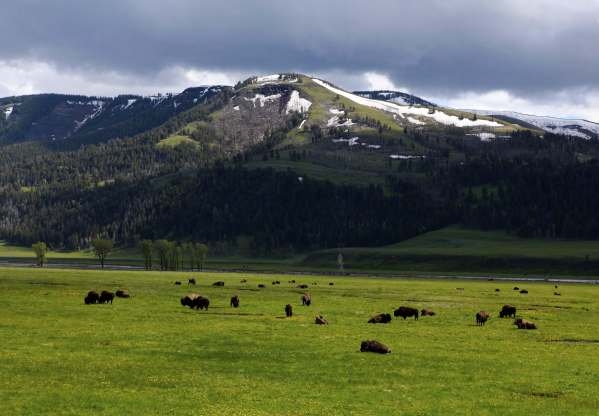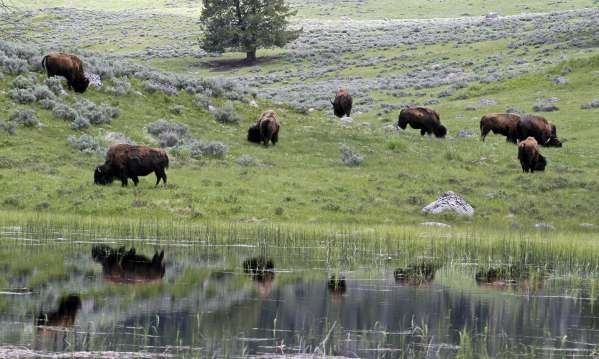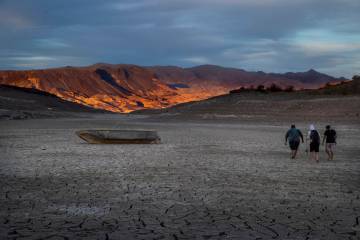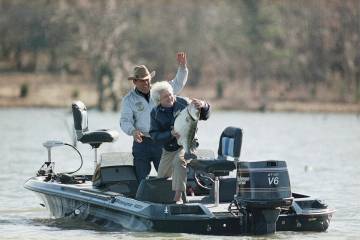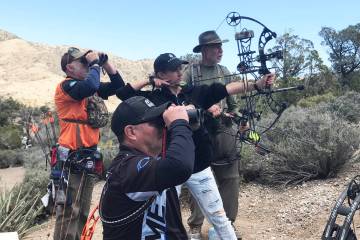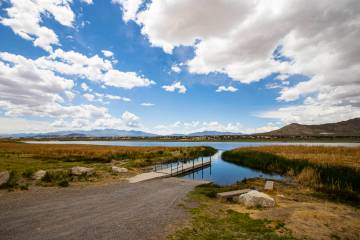Public lands would be in danger if given to individual states
Today many of us will sit down with family and friends to break bread and, in some cases, give thanks. After all, it is Thanksgiving Day.
My late wife's family has a mealtime tradition wherein my father-in-law asks one or more people at the table "What are you thankful for?" Those who are asked the question then provide a brief answer, which usually includes an expression of gratitude for family and friends along with whatever else is on their mind.
So, what am I thankful for?
I'm thankful my ancestors made the arduous cross-country journey from the midwest to the Great Basin in the mid-1800s. Their sacrifice has given me the opportunity to grow up and spend my life in country where public lands and natural resources are plentiful. A place where sagebrush filled valleys and slopes dotted with pinion pines serve as the gateway to steep mountain ranges with craggy peaks. A place where melting snows form trout filled streams and high-mountain lakes. A place where mule deer, Rocky Mountain elk, pronghorn antelope, bighorn sheep and other wildlife are a part of the landscape.
And perhaps above all, a place where no trespassing signs and fences have been and still are the exception rather than the rule. This has made available to all of us vast tracts of publicly owned land across much of the West. Land of which we are all part-owners. Land where people with a wide variety of outdoor interests can pursue those interests without fear of being cited or arrested for trespassing. Land where a multiple-use management approach can be of benefit to local communities whose leaders recognize that outdoor travel and tourism is a rather large industry, as well as to the individual recreationist who enjoys those lands.
Public lands are America's crowned jewels, riches shared by all of her people rather than amassed by the few with deep pockets and political influence. Unfortunately, there is a move afoot that would ultimately wrest those jewels away from us by taking it from the federal government and handing it to the states. Some say they simply want the land returned to the states.
The only problem with that philosophy is the states can't get back what they never had.
Something else to consider is the states' track record when it comes to federal land grants. It is none too good.
According to a report by the Theodore Roosevelt Conservation Partnership, "Western states were granted millions of acres by the federal government when they attained statehood. Many of these lands have been sold to private interests. Nevada, for example, was given 2.7 million acres when it became the 36th state in the union in 1864. It now has only 3,000. Utah has sold more than 50 percent of its original land grant.
Look across the West, and you'll see that the story is the same: Western states have remained committed to selling off public lands, and you can count on them doing it again if given the chance. Once privatized, these lands will become off limits to most sportsmen in perpetuity."
That report, entitled "Locked Out: Public Lands Transfers Threaten Sportsmen's Access" can be found online at www.trcp.org.
The bottom line is the states simply don't have the financial wherewithal to create and sustain the organizational infrastructure required to manage the nearly 640 million acres of publicly owned lands that are now managed by federal agencies. Yes, these agencies can drive an outdoor enthusiast absolutely crazy with some of their management decisions, especially since the lands belong to the people and not to agency personnel as individuals, but at least there is a chance for public input built into the system.
Perhaps we just need to get a little louder and more persistent while following the philosophy that the squeaky wheel gets the grease.
If America's public lands become private, there will be no such thing as public input when it comes to managing them, and there will be no public access. Just ask the people of California or Texas.
History has proven that the western states would simply sell their newly acquired treasure to the highest bidder for a one-time infusion of revenue and then what? The last bastion of publically held open space – true open space – would then be unavailable to all but the select few. Hopefully time will not tell.
As for today, I am thankful to our forebears who had the foresight to set aside publicly owned lands and make them available to the average individual. My hope is they will remain so for our children and grandchildren.
What are you thankful for?
Freelance writer Doug Nielsen is a conservation educator for the Nevada Department of Wildlife. His "In the Outdoors" column, published Thursday, is not affiliated with or endorsed by the NDOW. Any opinions he states in his column are his own. He can be reached at intheoutdoorslv@gmail.com.



